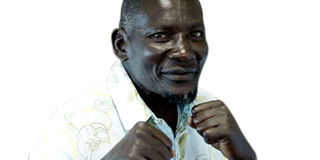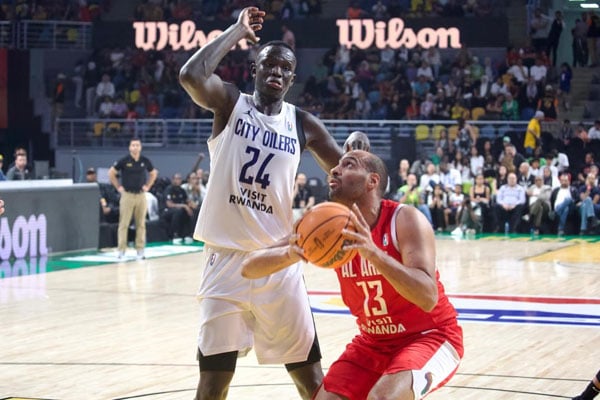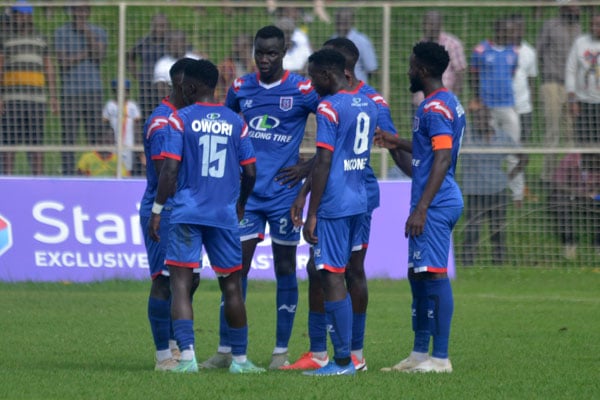When Ayub Kalule conquered boxing world in Havana

Ayub Kalule won Uganda’s first world title in boxing. FILE PHOTO
That boxing is Uganda’s most illustrious sport is hardly ever in doubt. What is ironical, though, is that most of the glorious moments of the ‘Sweet Science’ happened before the millennial era (1981), setting standards that remain too lofty for generations that followed.
This is what makes men like Ayub Kalule, the first African to win a boxing gold medal at the World Championships,
special.
Nearly 46 years ago, Kalule thrilled the world by winning gold at the inaugural (1974) World Amateur Boxing
Championship in Havana, Cuba. It was a hard-earned achievement for the 20-year-old light welterweight after
five convincing victories.
After becoming under-19 Africa champion in 1972, Kalule’s ascent to stardom just rose. The Kampala Boxing Club product lost the lightweight semis of the 1973 All-Africa Games in Lagos, Nigeria, but it was seen as more of a plus for the teenager.
Then came 1974. Kalule’s year. He had just turned 20 when he won gold at the 1974 Commonwealth Games in Christchurch, New Zealand – his first major international assignment.
Then he won gold in Havana and another gold at the African Boxing Championship in Kampala in November ’74.
The Havana series
At the World Championship, Kalule’s first victim was Puerto Rican Amador Rosario, whom he defeated on points. Next, he defeated the physically superior Marti Marjamaa by the same margin.
In the quarter-finals, Kalule defeated Mark Harris of Guyana, also on points, to storm into the coveted medal bracket.
In the semi-final, he faced Ulrich Beyer, who had represented East Germany at the Munich 1972 Olympics. Kalule outclassed him on points.
In the finals, he outclassed Bulgaria’s Vladimir Kolev 5-0. Kolev, now a Hollywood star, is the man who featured
as British Prisoner of War in the 2016 war movie Beyond Valkyrie: Dawn of the 4th Reich.
Kalule’s medal was Africa’s first and only gold at the event, as Kenya picked silver, and Nigeria and Ghana bronze apiece.
Cuba picked five gold medals and eight in total, followed by Soviet Union, with two gold, two silver and four bronze. USA and Yugoslavia, also won one gold. While light middleweight Joseph Nsubuga’s bronze meant that Uganda and Puerto Rico tied in fifth place.
Behind the scenes
What the world did not know, and many such details are never told, Vicky Byarugaba inadvertently contributed
to Kalule’s success back in Kampala. Kalule was struggling to fit in the mandatory 60kg for the lightweight when Byarugaba offered to vacate the light welterweight to go a division lower. Simply put, they swapped divisions.
Byarugaba defeated Argentina’s Luis Portillo, lost the second preliminary bout by a first-round TKO to Cuba’s eventual bronze medalist Luis Echaide.
But never dismiss the significance of his sacrifice for Kalule because when a similar situation occurred at the 2018 Commonwealth Games, the pugilists failed to agree and none won a medal.
There was another hero in Kalule’s success story.
“Ahead of our trip to Cuba,” Byarugaba told Daily Monitor last year, “We were in this gym [Lugogo] and Amin surprised us when he came in, did shadow boxing, and other exercises with us. He offered each one of us $1,000 (Shs71 at the time) in allowances, on top of what the [boxing] federation had provided.”
The boxers, though received $800 each of Amin’s gift. This Shs57 at the time was of a very significant value.
The reward for this motivation was the Havana triumph. After the conquest, Byarugaba relives: “We were booked into Grand Imperial Hotel for two weeks, ate whatever we wanted. Everyone was entitled to three visitors
a day, until the president hosted us to a state banquet.”
Amin also directed that each team member gets Shs10,000 as a prize, though Byarugaba says they didn’t get that money.
Secret weapon
Naturally, Kalule is an orthodox. But throughout his boxing career, he had a knack of switching stances, sometimes fighting as a southpaw.
“You can’t afford to be predictable,” he once told this reporter, with an arrogant smile. “You have to confuse your opponent and his corner.”
His ambidexterity helped him hit opponents with either hand. Strong and stout, Kalule was also a cool-headed fighter with stamina.
Havana was Kalule’s most prestigious amateur encounter, no wonder, the soft-spoken legend, who hardly flaunts his enviable achievements, told this newspaper in a 2015 interview that he never regrets missing the Olympics.
Nearly half a century later, Kalule’s gold and Nsubuga’s bronze are still Uganda’s only medals at the World Championships. The subsequent editions show the country’s fall from the sublime to the ridiculous of the sweet science – so called by British sportswriter
Pierce Egan in 1813 – a sport that requires fighters to be tactical and scientific in their approach, like Ayub Kalule was.
AYUB KALULE
1954. Born on January 6, 1954, in Kampala, Uganda.
Education. Attended Nsambya Police Primary School and Modern Senior Secondary School, Kampala.
Boxing. Began boxing in 1968 while at Nsambya Police Primary School.
Amateur. Joined Kampala Boxing Club in 1972, picked for national team in 1973.
Pro. Went professional in Denmark in 1976.
Record. At age 25, became Uganda’s first world boxing title holder, claiming WBA light middleweight title with a unanimous points decision over Masashi Kudo of Japan, on October 24, 1979.
Big fight. Defended the world title four times before losing it to legendary American Sugar Ray Leonard on June 25, 1981.
End. Hangs up gloves on February 5, 1986 after a loss to Herol Graham in UK.




